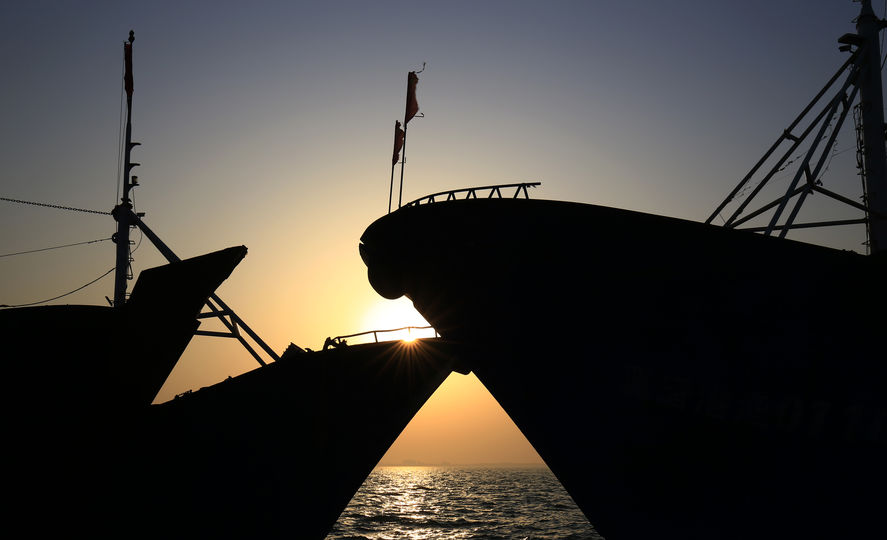Are the Chinese engaged in illegal fishing activity around the famed Galapagos Islands?
Well that is the question conservationists are trying to get to the bottom of as reports are surfacing that numerous Chinese fishing vessels might have been seen skirting the edges of this eco-sensitive region and suspiciously evading surveillance.
Although Ecuadorian authorities claim they are unaware of any foul play by China off the Galapagos, a Virginia-based data analytics company says it believes it might have uncovered evidence to the contrary. Using satellite technology, the firm located a number of unidentified vessels, believed to be part of a larger Chinese fleet, that entered the Galapagos waters and shut off their automatic identification system (AIS) — a GPS-based system that publicly transmits a vessel’s identity, speed and location.
As reported in Mongabay:
“It’s a legal requirement for industrial-sized fishing vessels in Ecuador to continuously transmit AIS. There can be legitimate reasons for a break in AIS transmission, such as poor satellite coverage. But in many instances, it indicates that a ship is deliberately trying to hide its location. On 43 occasions between July 13 and Aug. 13 this year, Chinese vessels near the Galápagos turned off their AIS systems and went “dark,” according to a report by the conservation NGO Oceana that relied on data from the Global Fishing Watch ship-tracking platform. On average, these vessels deactivated their AIS for two days at a time, with the longest stretch being around 17 days, the report said.”
Adding to the suspicious behavior is the fact that a number of these Chinese vessels are known to have a history of involvement in illegal fishing activities. While nothing is proven at the moment, the good news is that uncovering the truth may get a whole lot easier – that’s because new technologies are on the horizon that will be better able to discover even ships that “go dark” and turn off their AIS transmissions.
For more information, read the original story at Mongabay here.
